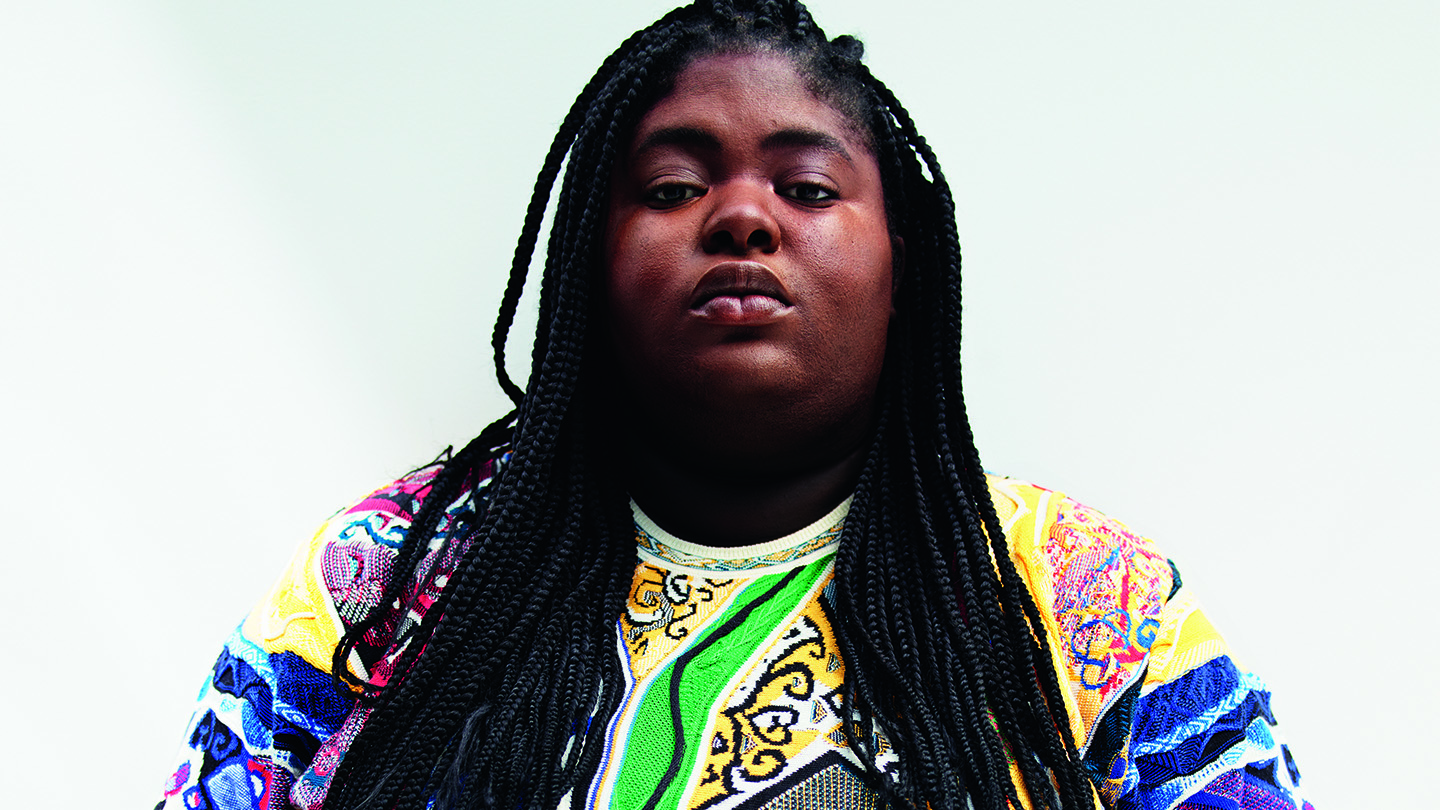Chika Oranika’s voice echoes around the sun filled space of Mario Sorrenti’s Brooklyn studio. She’s busy doing her own make-up, mahogany coloured powder melting into her skin, getting ready to be shot. Chika has a fierce tenacity for how she’s represented and a radical and intelligent critique of culture. Right now Chika is in the midst of an unstoppable rise.
It was a rebuttal against Kanye West’s affinity for Donald Trump that changed Chika’s life. Filming herself on her phone, rapping over the beat from West’s Jesus Walks, the 22-year-old from Montgomery, Alabama, delivered a searing, eloquent and electric verse questioning and admonishing Kanye’s surprising relationship with the current President of the United States. This short clip from April 2018 has now been shared over 117,000 times. It wasn’t the rst time that one of Chika’s raps had gone viral, but it was the first time where she felt like what she was saying was resonating and echoing how others were feeling.
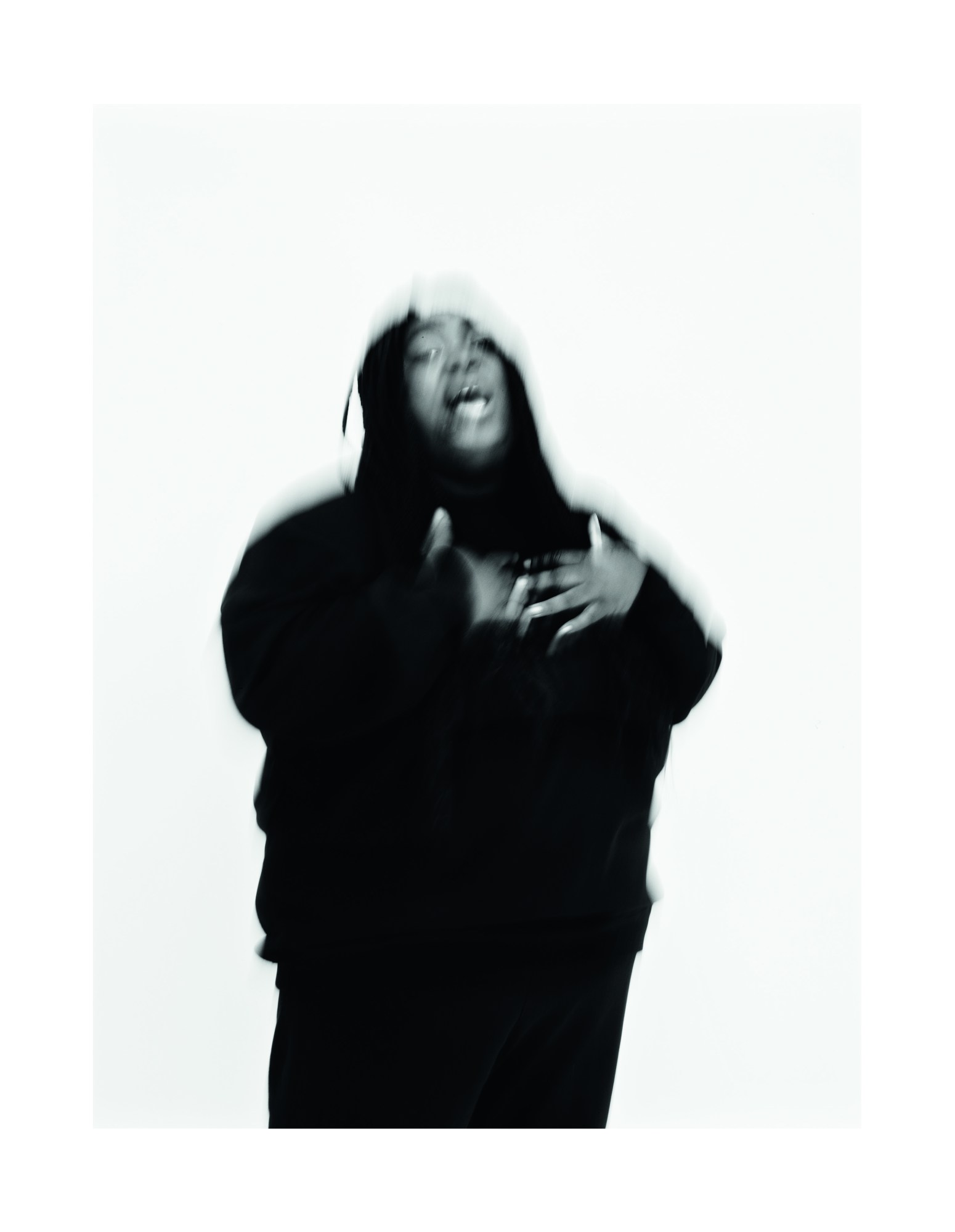
Since then she’s had a busy 12 months, working on her own music (the release of her debut single, No Squares, was followed by the breezy-but-emotive High Rises) and starring in Calvin Klein’s latest #MyCalvins campaign. “Swim, baby girl, you were not meant for the surface. Do not be afraid, you are as deep as the ocean you came from,” she rapped in the campaign, sharing her truth with the world.
Tehn, invited by Lena Waithe to appear on Jimmy Kimmel Live, Chika used her platform to demolish the politicians of her home state of Alabama after they passed a bill to outlaw abortion by performing new track Richey vs Alabama. It was the sort of performance that turns a new artist into a star. Her ascent is exciting but most importantly, vital: Chika is the feminist, poetic, political voice rap music needs right now.
Paloma: I would like to say, firstly, how honoured I am to sit with you and talk to you. You grew up in Montgomery, Alabama, it’s such a politically charged place at the moment.
Chika: With my career, you know, it has been a real driving force for me to get out of Montgomery. Anyone who’s made it out of Montgomery is like a rose that grew out of the concrete, because there’s no way we were supposed to get away from there.
Alabama is at the forefront of the battle over reproductive rights, as it has long been in crisis surrounding the issue. I saw that really powerful freestyle you did on Jimmy Kimmel Live after Alabama passed that bill almost completely banning abortion. Why was it so important for you to do that?
It felt almost like an obligation, in the best sense of the word. It wasn’t like it was a burden. So many women don’t have the opportunity to speak out and I don’t think that’s fair. When I was invited on Jimmy Kimmel, it felt so important; I needed to do it. I named it Richey vs Alabama for a friend, her name is LJ Richey, and she’s working on a lm at the moment about her abortion story. Before the performance, I went and spoke to her, because it’s not an experience I’ve had. I was like, “How can I help? What can I do?” If anything I’m just trying to be a champion for the people and speak for the underdog. The people who pass bills and create laws about these issues know nothing about it.
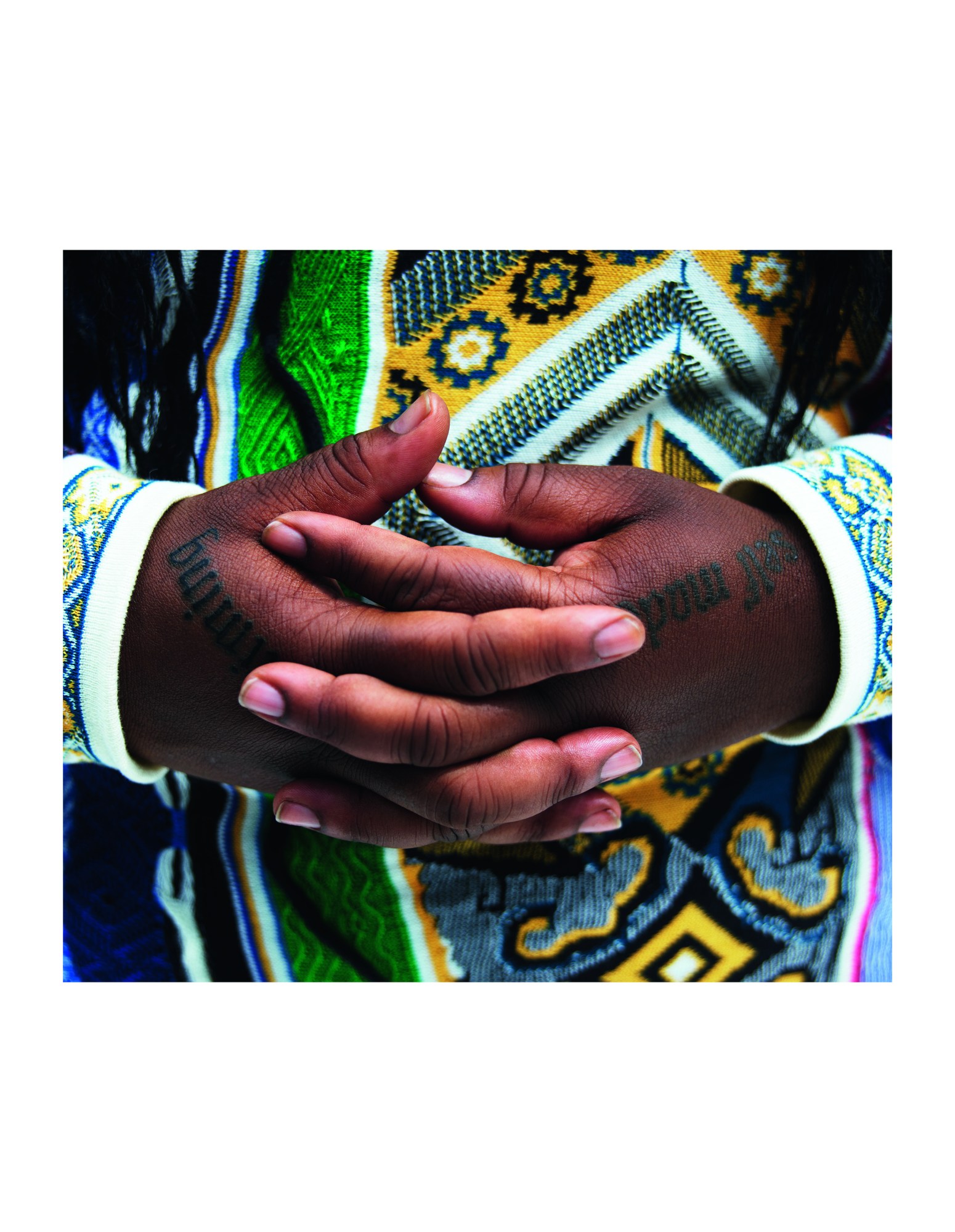
We’re starting to see how this bill will affect people in Alabama, and it will affect poor, black, women the most, and poor people in general. That’s always been the way in the South. It’s made out to be just about race when in actuality it’s always been about class. There are racist people in Alabama who don’t understand that they have more in common with people of colour than they do with the white people they side with, just because they think that white is the be all and end all. Poor white people and poor black people are in the same situation.
This law will take away a woman’s autonomy over her own body. It’s men making a decision about how you should use your body. It’s not even like we’re creating another law saying that men have to take care of their child — it takes two people to create a child. So we’re penalising women for how their bodies work. It makes me so sad to see women in Alabama feel like they’re voiceless.
I know you’ve talked about it a lot, but I was introduced to your work through that Kanye freestyle you did after he came out praising Donald Trump. It was so powerful to me.
It was one of the quickest verses I’ve ever written just because there was so much emotion behind it.
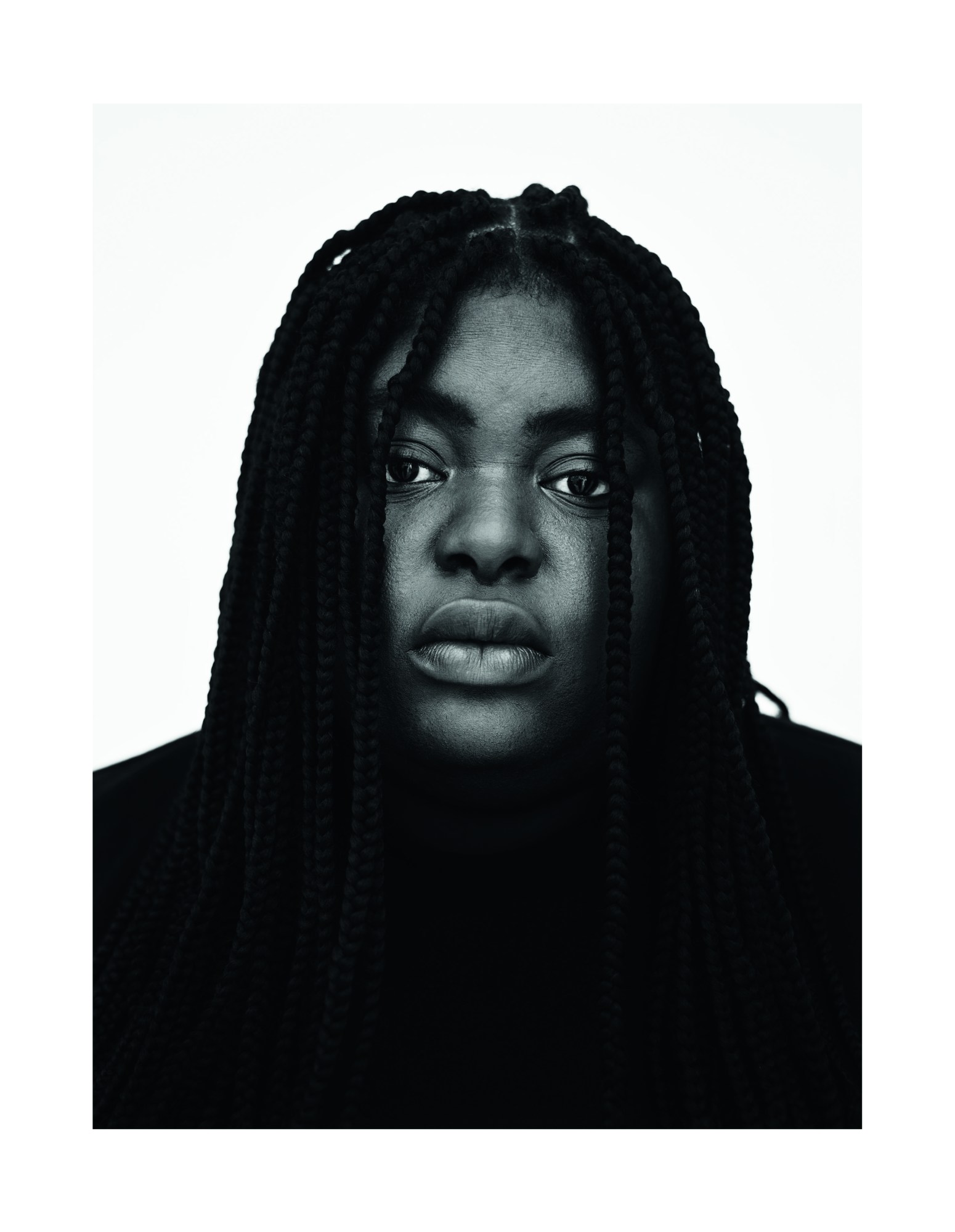
Right.
I felt betrayed by Kanye.We get so attached to people in the public eye, especially those who stand up for us, that when you see someone you identify with go from one political extreme to the other in such a quick time it’s crazy. You feel naked and alone and exposed, like no one is really on your side. Music has always been a tool for us to talk about our oppression, our feelings, our lives. I feel like until that point, Kanye had been using his music to further the conversation around blackness. And then for him to backtrack in the blink of an eye, I couldn’t get my head around it. I just knew I needed to say something about the situation.
Can we talk about beauty a bit too? I was absolutely rocked when I saw your Calvin Klein advert. You were my hero in that moment. It’s so important to represent all the nuances of identity and you really spoke to that. You’re beautiful, you’re black, you’re visibly plus size, you’re intelligent.
When it comes to beauty standards and how that advert affected people, it ended up being so much bigger than I thought it would be. I wasn’t prepared for the love I got because I was getting so much hate online at the time. I kept on being called fatphobic for telling publications you don’t need to label me a fat rapper. It’s redundant and rude. You
wouldn’t go up to someone and be like, you’re a fat lawyer, or a fat doctor, so why is that acceptable if you’re a musician. I feel like I shouldn’t have to talk so much about my outer shell, it’s just so unnecessary and really weird.
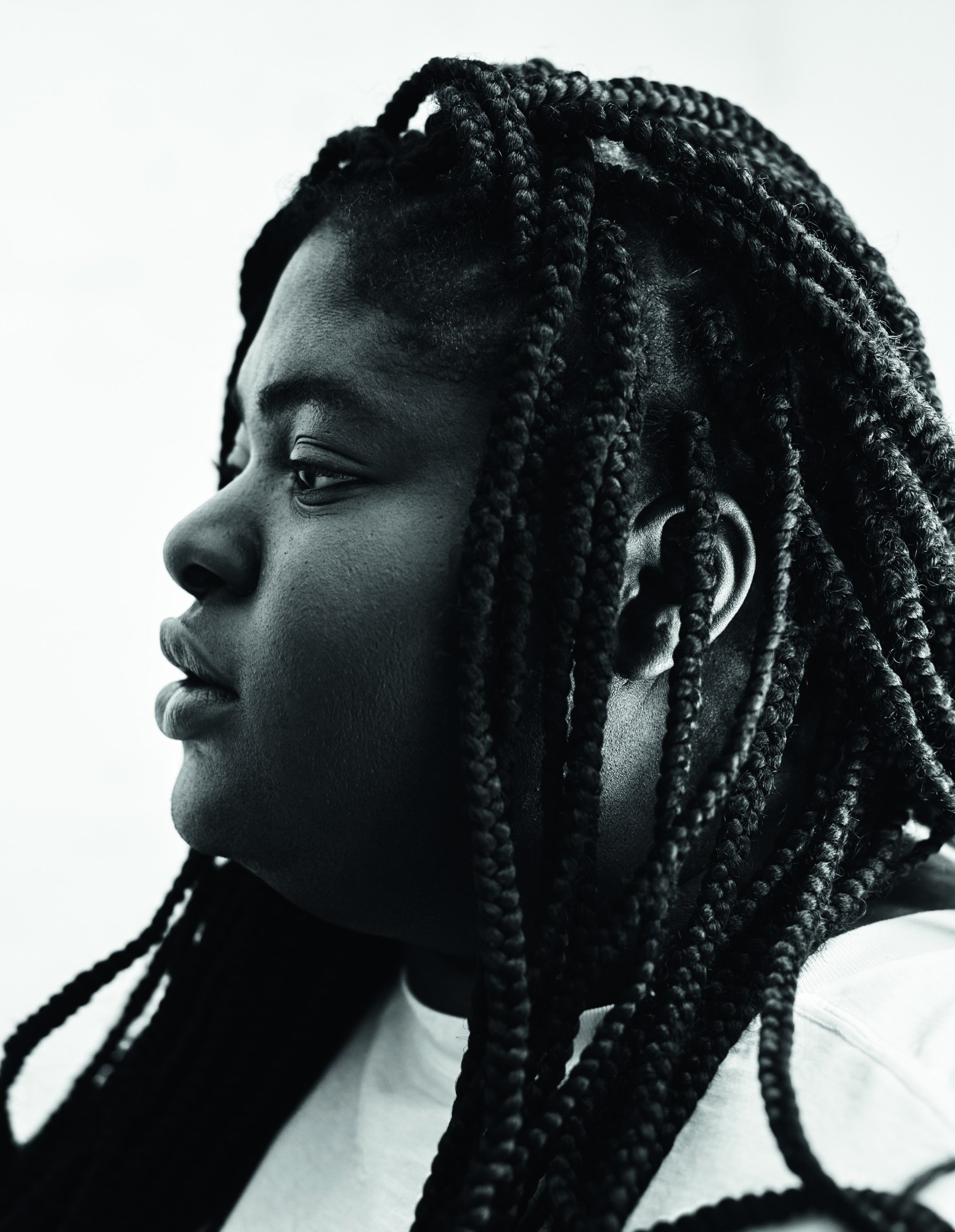
It shouldn’t be a brave act to exist in your own body, except it’s seen against the normative stereotype of a body that we’ve been forced to digest, which is obviously a thin, white, tall woman.
I feel like the labels people place on me, like being brave, are oppressive too, because it’s underhanded. It reinforces the standard. If you want to normalise something don’t draw attention to it.
Like, yes, praise the things that are worth being praised, but for me, existing in my body is not worthy of praise. I just don’t want there to be a problem with how I am. It’s unfair to live in a world where you feel like your body is standing in between everything. I want to cause a cultural shift, that’s the one thing I want. Like there’s nothing else I want to do. I can’t make you love your body. You’re going to have to work on it yourself because we all have to work on it ourselves. I’m not here to x these things that we all put on ourselves.
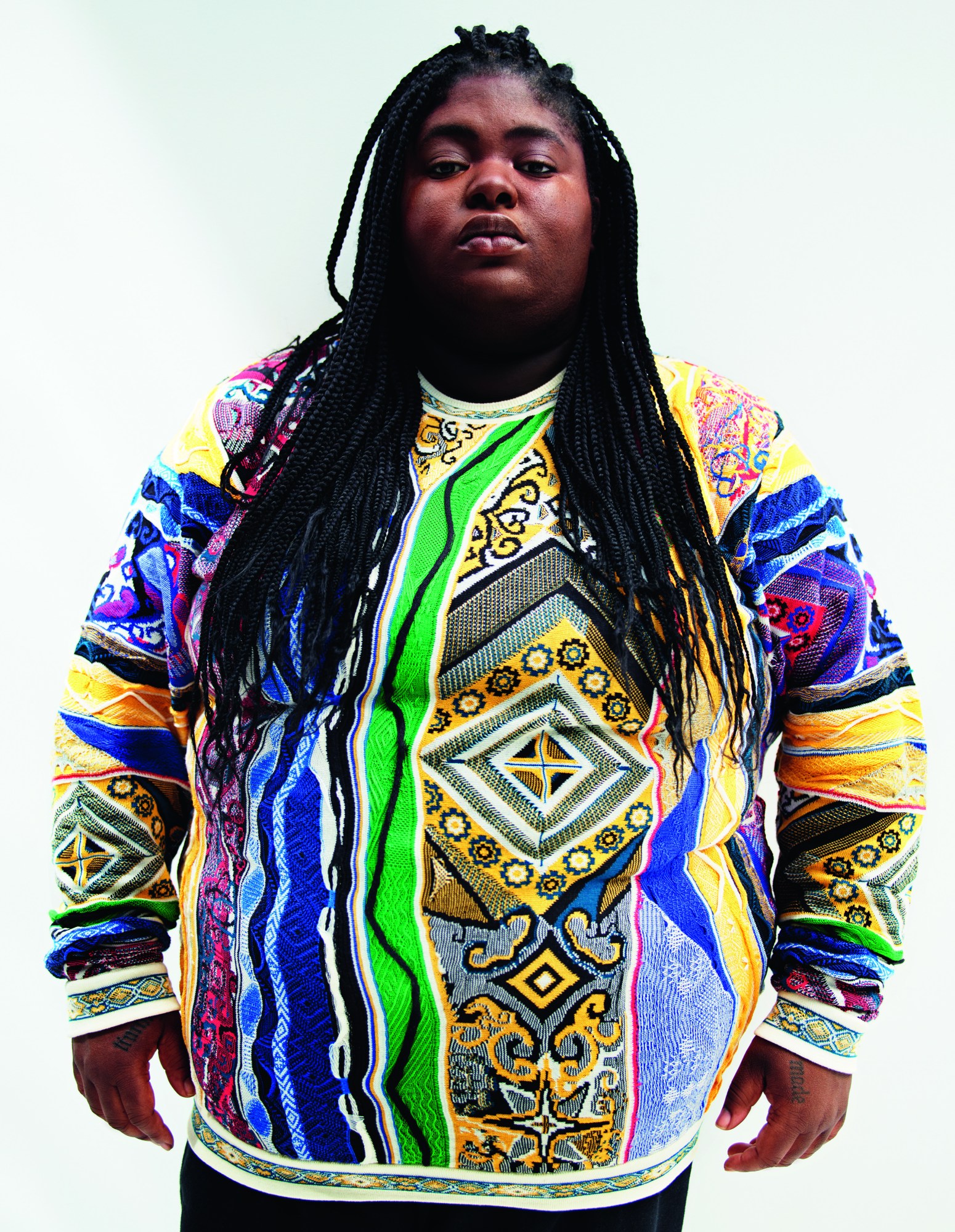
Credits
Photography Mario Sorrenti.
Styling Alastair McKimm.
Hair Bob Recine for Rodin.
Make-up Kanako Takase at Streeters.
Nail technician Honey at Exposure NY using Dior.
Photography assistance Lars Beaulieu, Kotaro Kawashima, Javier Villegas and Chad Meyer.
Styling assistance Madison Matusich, Milton Dixon III and Yasmin Regisford.
Hair assistance Kabuto Okuzawa and Kazuhide Katahira.
Make-up assistance Kuma.
Production Katie Fash.
Production assistance Layla Néméjanksi and Adam Gowan.
Creative and casting consultant Ruba Abu-Nimah.
Casting director Samuel Ellis Scheinman for DMCASTING.
